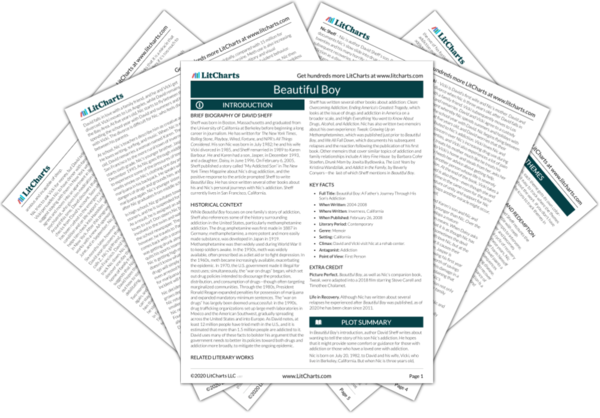AI ToolsNew
Tools to make learning and teaching easier
|
Previous
Chapter 20
|
Beautiful Boy: Chapter 21 Summary & Analysis |
Next
Chapter 22
|


Upgrade to unlock the analysis and theme tracking for all of Beautiful BoyBeautiful Boy!
Get LitCharts A+